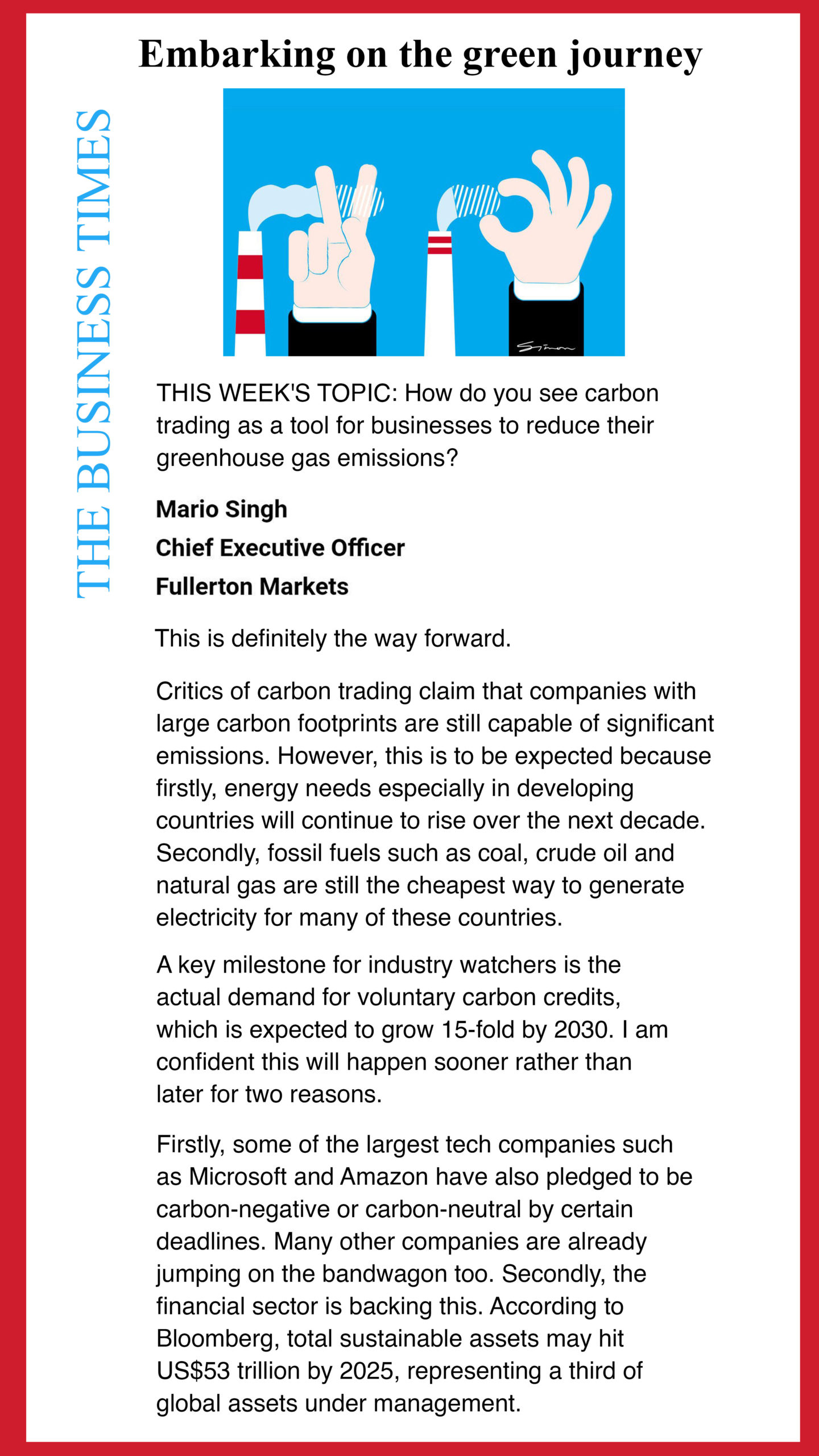THIS WEEK’S TOPIC: How do you see carbon trading as a tool for businesses to reduce their greenhouse gas emissions?
This is definitely the way forward.
Critics of carbon trading claim that companies with large carbon footprints are still capable of significant emissions. However, this is to be expected because firstly, energy needs especially in developing countries will continue to rise over the next decade. Secondly, fossil fuels such as coal, crude oil and natural gas are still the cheapest way to generate electricity for many of these countries.
A key milestone for industry watchers is the actual demand for voluntary carbon credits, which is expected to grow 15-fold by 2030. I am confident this will happen sooner rather than later for two reasons.
Firstly, some of the largest tech companies such as Microsoft and Amazon have also pledged to be carbon-negative or carbon-neutral by certain deadlines. Many other companies are already jumping on the bandwagon too. Secondly, the financial sector is backing this. According to Bloomberg, total sustainable assets may hit US$53 trillion by 2025, representing a third of global assets under management.
Mario Singh
Chief Executive Office
Fullerton Markets






